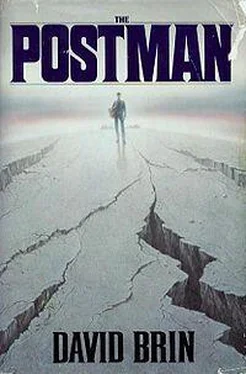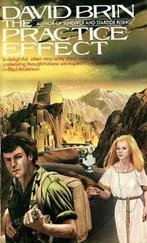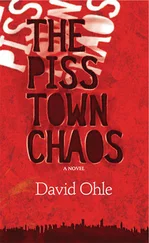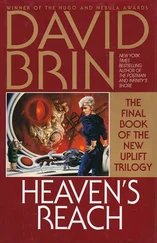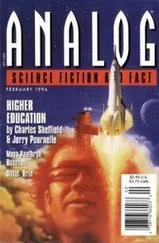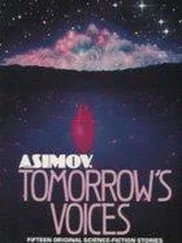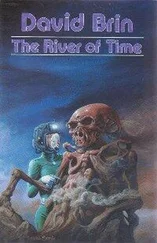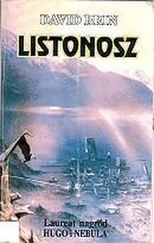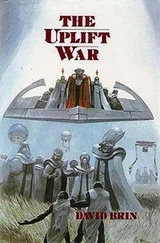Now what was a prewar mailman doing with a gadget like that? Gordon wondered idly, as the device went into his pants pocket.
The glove compartment flashlight was a loss, of course; the emergency flares were crumbled paste.
The bag, of course. On the floor below the driver’s seat was a large, leather letter carrier’s sack. It was dry and cracked, but the straps held when he tugged, and the flaps would keep out water.
It wouldn’t come close to replacing his lost Kelty, but the bag would be a vast improvement over nothing at all. He opened the main compartment and bundles of aged correspondence spilled out, breaking into scattered piles as brittle rubber bands snapped apart. Gordon picked up a few of the nearest pieces.
“From the Mayor of Bend, Oregon, to the Chairman of the School of Medicine, University of Oregon, Eugene.” Gordon intoned the address as though he were playing Polo-nius. He flipped through more letters. The addresses sounded pompous and archaic.
“Dr. Franklin Davis, of the small town of Gilchrist sends — with the word urgent printed clearly on the envelope — a rather bulky letter to the Director of Regional Disbursement of Medical Supplies… no doubt pleading priority for his requisitions.”
Gordon’s sardonic smile faded into a frown as he turned over one letter after another. Something was wrong, here.
He had expected to be amused by junk mail and personal correspondence. But there didn’t seem to be a single advertisement in the bag, And while there were many private letters, most of the envelopes appeared to be on one or another type of official stationery.
Well, there wasn’t time for voyeurism anyway. He’d take a dozen or so letters for entertainment, and use the backsides for his new journal.
He avoided thinking about the loss of the old volume — sixteen years’ tiny scratchings, now doubtless being perused by that onetime stockbroker robber. It would be read and preserved, he was sure, along with the tiny volumes of verse he had carried in his pack, or he had misread Roger Sep-tien’s personality.
Someday, he would come and get them back.
What was a U.S. Postal Service jeep doing out here, anyway? And what had killed the postman? He found part of his answer around at the back of the vehicle — bullet holes in the tailgate window, well grouped midway up the right side.
Gordon looked over to the ponderosa. Yes, the shirt and the jacket each had two holes in the back of the upper chest area.
The attempted hijacking or robbery could not have been prewar. Mail carriers were almost never attacked, even in the late eighties’ depression riots, before the “golden age” of the nineties.
Besides, a missing carrier would have been searched for until found.
So, the attack took place after the One-Week War. But what was a mailman doing driving alone through the countryside after the United States had effectively ceased to exist? How long afterward had this happened?
The fellow must have driven off from his ambush, seeking obscure roads and trails to get away from his assailants. Maybe he didn’t know the severity of his wounds, or simply panicked.
But Gordon suspected that there was another reason the letter carrier had chosen to weave in and out of blackberry thickets to hide deep in forest depths.
“He was protecting his cargo,” Gordon whispered. “He measured the chance he’d black out on the road against the possibility of getting to help… and decided to cache the mail, rather than try to live.”
So, this was a bona fide postwar postman. A hero of the flickering twilight of civilization. Gordon thought of the old-time ode of the mails… “Neither sleet, nor hail…” and wondered at the fact that some had tried this hard to keep the light alive.
That explained the official letters and the lack of junk mail. He hadn’t realized that even a semblance of normality had remained for so long. Of course, a seventeen-year-old militia recruit was unlikely to have seen anything normal. Mob rule and general looting in the main disbursement centers had kept armed authority busy and attrited until the militia finally vanished into the disturbances it had been sent to quell. If men and women elsewhere were behaving more like human beings during those months of horror, Gordon never witnessed it.
The brave story of the postman only served to depress Gordon. This tale of struggle against chaos, by mayors and university professors and postmen, had a “what if” flavor that was too poignant for him to consider for long.
The tailgate opened reluctantly, after some prying. Moving mail sacks aside, he found the letter carrier’s hat, with its tarnished badge, an empty lunchbox, and a valuable pair of sunglasses lying in thick dust atop a wheel well.
A small shovel, intended to help free the jeep from road ruts, would now help to bury the driver.
Finally, just behind the driver’s seat, broken under several heavy sacks, Gordon found a smashed guitar. A large-caliber bullet had snapped its neck. Near it, a large, yellowed plastic bag held a pound of desiccated herbs that gave off a strong, musky odor. Gordon’s recollection hadn’t faded enough to forget the aroma of marijuana.
He had envisioned the postman as a middle-aged, balding, conservative type. Gordon now recreated the image, and made the fellow look more like himself, wiry, bearded, with a perpetual, stunned expression that seemed about to say, “Oh, wow.”
A neohippy perhaps — a member of a subgeneration that had hardly begun to flower before the war snuffed it out and everything else optimistic — a neohippy dying to protect the establishment’s mail. It didn’t surprise Gordon in the slightest. He had had friends in the movement, sincere people, if maybe a little strange.
Gordon retrieved the guitar strings and for the first time that morning felt a little guilty.
The letter carrier hadn’t even been armed! Gordon remembered reading once that the U.S. Mail operated across the lines for three years into the 1860s Civil War. Perhaps this fellow had trusted his countrymen to respect that tradition.
Post-Chaos America had no tradition but survival. In his travels, Gordon had found that some isolated communities welcomed him in the same way minstrels had been kindly received far and wide in medieval days. In others, wild varieties of paranoia reigned. Even in those rare cases where he had found friendliness, where decent people seemed willing to welcome a stranger, Gordon had always, before long, moved on. Always, he found himself beginning to dream again of wheels turning and things flying in the sky.
It was already midmorning. His gleanings here were enough to make the chances of survival better without a confrontation with the bandits. The sooner he was over the pass then, and into a decent watershed, the better off he would be.
Right now, nothing would serve him half so well as a stream, somewhere out of the range of the bandit gang, where he could fish for trout to fill his belly.
One more task, here. He hefted the shovel.
Hungry or not, you owe the guy this much.
He looked around for a shady spot with soft earth to dig in, and a view.
“…They said, ‘Fear not, Macbeth, till Birnam Wood comes to Dunsinane’; and now a wood comes to Dunsinane!
“Arm, arm, arm yourselves! If this is what the witch spoke of — that thing out there — there’ll be no running, or hiding here!”
Gordon clutched his wooden sword, contrived from planking and a bit of tin. He motioned to an invisible aide-de-camp.
“I’m gettin’ weary of the sun, and wish the world were undone.
“Ring the alarum bell! Blow, wind! Come wrack! At least we’ll die with harness on our back!”
Gordon squared his shoulders, flourished his sword, and marched Macbeth offstage to his doom.
Читать дальше
